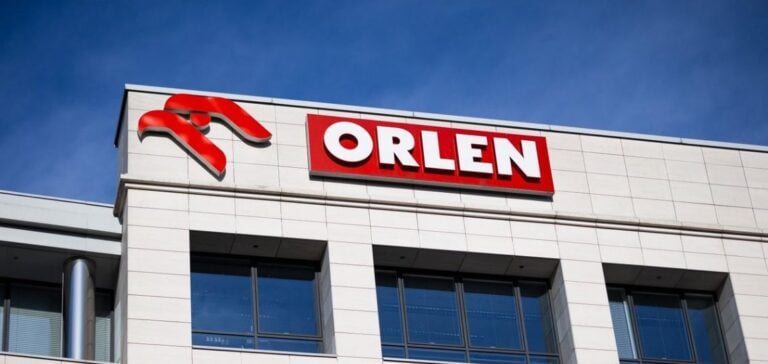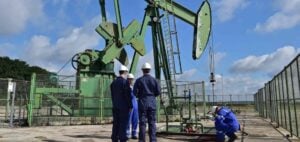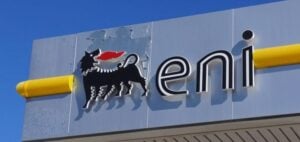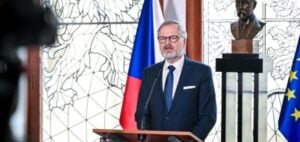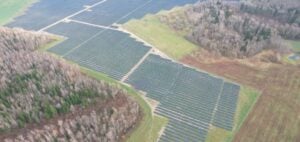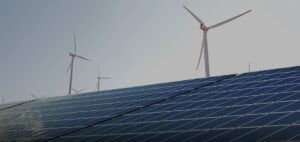Poland’s leading oil and gas refiner, Orlen, recently announced a major investment of $850 million to improve its energy distribution network in Poland. This strategic project, carried out in partnership with the European Investment Bank (EIB), aims to modernize the energy distribution infrastructure, particularly in northern and central Poland, to better align with the company’s decarbonization and efficiency objectives.
The implementation of this project is supported by a loan agreement with the EIB, which includes a total package of 3.5 billion zlotys, with an initial tranche of 900 million already disbursed. This funding will support phased modernization work over three years, incorporating critical innovations such as renewable energy connectivity and the installation of smart metering systems.
A Network Adapted to Renewable Energy
One of the main goals of this project is the expansion of transmission lines to facilitate connections with renewable energy sources. Although Poland is still heavily reliant on coal, it faces increasing pressure to shift towards cleaner energy sources in accordance with the European Union’s climate policies. Integrating smart metering technologies will enable better monitoring of energy consumption and real-time adaptation to demand fluctuations, offering greater stability to the grid.
Orlen, led by CEO Ireneusz Fafara, has emphasized that merely shifting to renewable energy does not fully address decarbonization challenges. According to him, a broader approach is required, including the development of energy storage solutions, demand management, and operational optimization. This modernization project therefore aims to reduce carbon emissions while improving the national energy infrastructure.
The Energy Transition Amid Coal Challenges
Poland’s heavy reliance on coal for electricity generation is increasingly costly, with rising carbon emissions taxes weighing heavily on the energy sector. The country is thus compelled to diversify its energy sources to reduce emissions and meet EU targets. Orlen’s investment in cleaner and more efficient distribution capabilities is a crucial step in this energy transition, while meeting both commercial and regulatory demands.
Role of the European Investment Bank
The EIB’s financial support reflects a broader European commitment to green financing, especially in regions historically reliant on coal, such as Poland. Under this agreement, Orlen and the EIB have established a clear plan for the use of funds, intended to serve as a model for other regional players. This partnership aligns with the EIB’s climate-focused investment priorities and aims to accelerate Poland’s decarbonization trajectory by facilitating investments in infrastructure that supports renewable energy and operational efficiency.
Competitive and Operational Impact for Orlen
For Orlen, this network modernization not only enhances operational efficiency but also strengthens competitiveness. As the global energy sector increasingly focuses on sustainability, companies are incentivized to innovate. This project offers Orlen an opportunity to improve the reliability and flexibility of its network, responding to growing demand for renewable energy connectivity and positioning itself as a leader in the region’s energy market.
As carbon emissions costs continue to rise, companies that proactively adapt their infrastructure to reduce emissions could achieve substantial cost savings. This modernization allows Orlen to mitigate regulatory risks while realizing savings through more efficient energy consumption.
Broader Economic and Political Implications
In the European context, Orlen’s initiative is part of a trend where state-aligned companies are driving the transition to cleaner energy. This partnership with the EIB marks a shift in Polish energy policy, where large-scale investments in sustainable energy infrastructure are increasingly prioritized. This initiative also carries geopolitical significance as Poland seeks to strengthen its energy independence and align its policies with the EU’s climate agenda.
Orlen’s $850 million investment, supported by the EIB, represents a business model that combines profitability, regulatory compliance, and environmental responsibility. By enhancing its renewable energy connections, developing smart metering technology, and improving grid reliability, Orlen is positioning itself as a key player in Poland’s evolving energy landscape, supporting the nation’s transition to a cleaner, more sustainable future.

